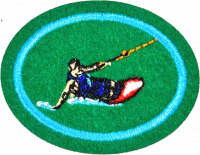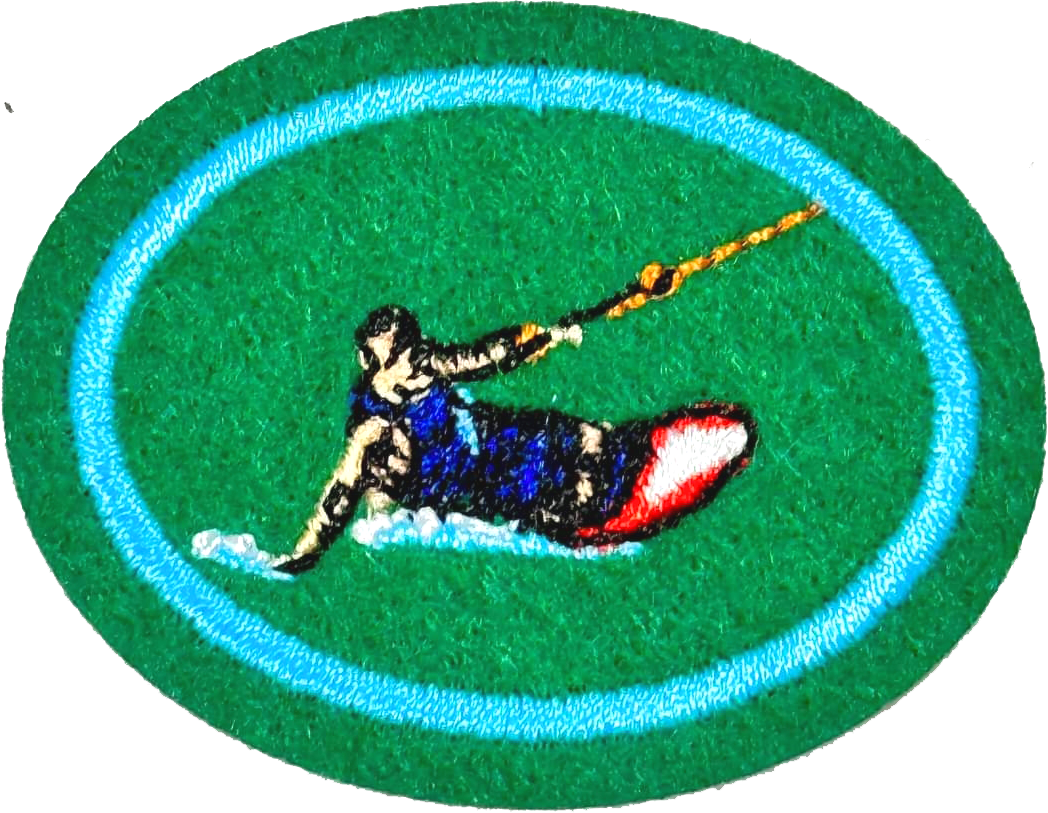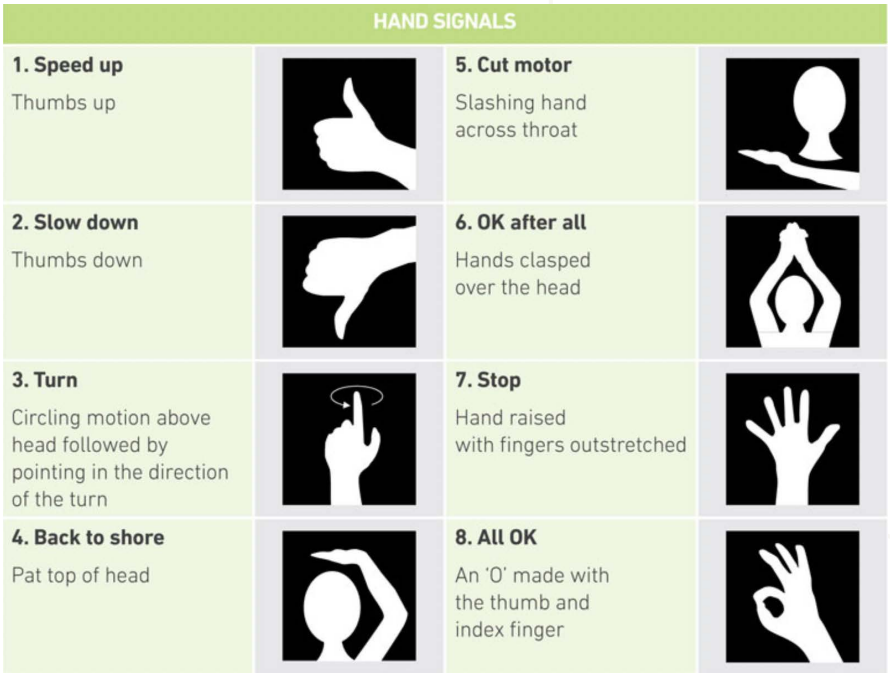Respuestas para la especialidad JA de Kneeboard
1
2
a. Nunca haga kneeboard durante la noche.
b. Nunca haga kneeboard durante una tormenta eléctrica.
c. Siempre utilice un chaleco salvavidas homologado.
d. Verificar que la hebilla del chaleco esté bien cerrada.
e. Demostrar que puede desatar la correa sobre sus rodillas mientras está boca abajo en el agua.
f. Make sure the tow rope is in good condition - Damaged ropes will not have the rated holding capacity and may break leading to injury.
g. Make sure the kneeboard is in working condition - A damaged knee board can potentially result in injury to yourself or others.
h. Have a spotter on the water craft - This is a legal requirement in most states in Australia. Please check local guidelines for who can be a spotter.
i. Stay clear of objects, such as other skiers, swimmers, docks, or floating objects - Make sure to always keep a proper lookout for dangers around you and your kneeboarder.
j. If a fall occurs, let go of the rope and raise your hand to signal you are ok - Hanging on to the rope after a fall will subject the body to numerous impacts with the surface of the water. Being dragged along can also wrest the ski vest out of position.
k. Do not stand on the water craft while it is moving. - The likelihood of falling out of a boat is greatly increased for persons not seated. A fast boat can easily suck a person under where they can be hit by the propeller.
3
a. Speed Up - Thumbs Up.
b. Slow Down - Thumbs Down.
c. Turn - Circling motion above head followed by pointing to the direction of the turn.
d. Back to shore - Pat top of head.
e. Cut Motor - Slashing hand across throat.
f. OK after all - Hands clasped over the head.
g. Stop - Hand raised with fingers outstretched.
h. All OK - An ‘O’ made with the thumb and index finger.
4
This may require a bit of practice to master and someone to coach you.
5
This may require a bit of practice to master and someone to coach you.
6
Plastic Kneeboard - It is the most common and durable material, it is often foam filled making it buoyant. This leads to a flexible and forgiving kneeboard for beginners.
Fibreglass Kneeboard - Fibreglass makes a stiffer, thinner board with better performance.
Timber Kneeboard - These boards deliver the same thin profile design as fibreglass boards but are easier on the knees with softer landings and springy take-offs. They are more durable than fibreglass boards.




